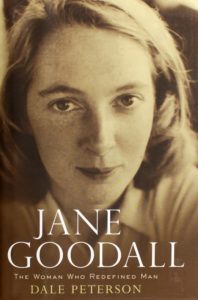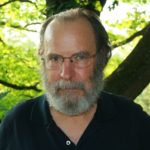Lecture Date: February 7, 2019
The Dovetail Cultural Resources Group Lecture

Because the colonial authorities would not allow a European woman to go into a wilderness by herself, Jane Goodall brought her mother, and on July 14, 1960, the two of them pitched their tents in the forest of the Gombe Stream Chimpanzee Reserve in Tanganyika Territory. By summer's end, Goodall had made more clear observations of wild chimpanzees than anyone ever had done. In October, she witnessed chimpanzees eating meat, a startling observation that contributed to a scientific revolution in recognizing the great diversity of primate behavior. In November, she documented wild chimpanzees fashioning and using simple tools, a second revolutionary observation that overturned the anthropological cliché of "Man the Toolmaker."
Within a couple of years, Goodall was internationally recognized for her work at Gombe, and--once she acquired the requisite PhD in 1965--she began gradually to overcome the prejudices against her as a woman and as an amateur who had belatedly turned professional. Within another decade or two, Dr. Jane Goodall was at last accepted by her peers as a great pioneering primatologist and among the most accomplished women scientists of the twentieth century.
Speaker: Dale Peterson

After completing a PhD in English from Stanford University in 1977, Dale Peterson became a carpenter, intending to write in his spare time. After educating himself about endangered primates by traveling into tropical forests around the world, Peterson met the world-famous chimpanzee researcher Dr. Jane Goodall. He co-authored with her Visions of Caliban: On Chimpanzees and People, which was a New York Times Notable Book of the Year for 1993. His "definitive" biography, Jane Goodall: The Woman Who Redefined Man (2006), widely reviewed and universally praised, was a Boston Globe Best Book and a New York Times Notable Book of the Year.
In April of 2018, the University of California Press released Peterson's twentieth book, The Ghosts of Gombe, which is a detailed account of life at Goodall's research camp in 1968 and 1969, a period that was tragically marked by the violent death of one of the volunteer researchers. A former Fellow at the Radcliffe Institute for Advanced Study at Harvard University, Dr. Peterson currently lectures part-time in the English Department of Tufts University.